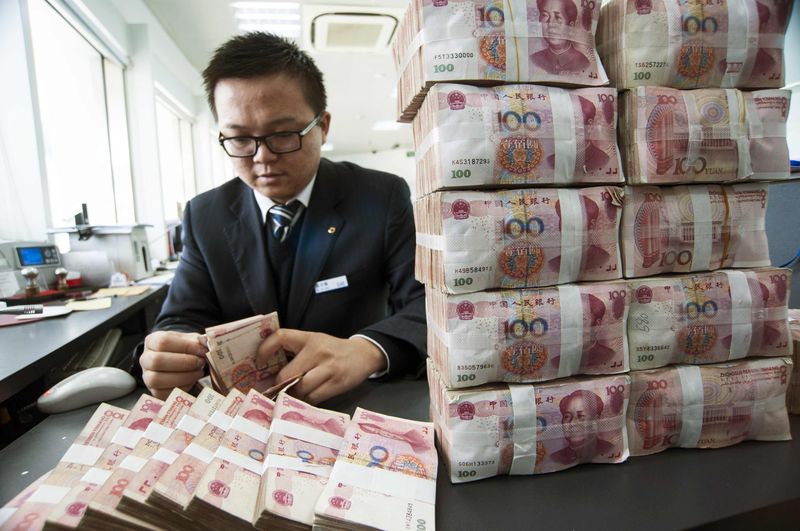BEIJING (Reuters) - China's outstanding household consumer loans surged nearly 30 percent by end September from a year earlier, data showed on Friday, a day after its central bank governor issued a strong warning about the risks of rapidly rising debt.
A central bank report also showed a sharp jump of nearly 23 percent in property loans in the same period, suggesting authorities will be in no rush to remove tough cooling measures imposed over the past year to rein in soaring home prices.
On Thursday, People's Bank of China Governor Zhou Xiaochuan issued a stark warning about asset bubbles in the world's second-largest economy, which has posted more robust growth this year driven by government spending and record bank lending.
Speaking on the sidelines of a twice-a-decade Communist Party Congress, one of the most pivotal events in the country, Zhou said China will fend off risks from excessive optimism that could lead to a "Minsky Moment", referring to a sudden collapse in asset prices after long periods of growth, sparked by debt or currency pressures.
While China's debt has built up rapidly in recent years, much is held by firms under state control.
The government and China bulls argue that its debt levels are generally manageable, given that levels of sovereign and household debt are much lower than in advanced economies, while savings rates are far higher.
The central bank report on Friday, however, suggested consumers are quickly catching up in the debt race, and much of the credit growth appears linked to the property market.
Outstanding household consumer loans in both yuan and foreign currencies totaled 30.2 trillion yuan ($4.56 trillion) by end September, jumping 29.1 percent from a year earlier.
In the first nine months of this year, China's banks issued 5.1 trillion yuan of new household consumer loans.
Analysts suspect funds from some of these consumer loans are flowing illicitly into the property market and stock market. China recently launched probes into consumer loans that are being misused for home purchases, warning they cannot be used to "fuel property bubbles".
Despite intensifying property curbs and higher mortgage rates, Chinese banks issued 4.4 trillion yuan ($664.70 billion) of property loans in the first nine months of this year, more than the 4.32 trillion issued in the same period last year. The figures include individual mortgages and loans for property development.
As a result, outstanding yuan-denominated property loans rose 22.8 percent by end-September from a year earlier to 31.1 trillion yuan, the central bank said.
Outstanding individual mortgage loans rose 26.2 percent to 21.1 trillion yuan. The central bank didn't disclose the value of new mortgages issued in the first three quarters.
China will release its latest home price data on Monday. Restrictions on home buying have seen prices level out and even soften slightly in top cities in recent months, but there are signs that speculators are now moving into smaller cities and towns with fewer controls.
Economists say surging house prices will also start to weigh on consumer demand as homeowners divert more of their income to servicing their mortgages.
While China's per capita disposable income rose at the fastest pace in 2 years in the first nine months of this year, spending growth slowed to the weakest on record.
